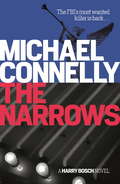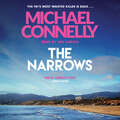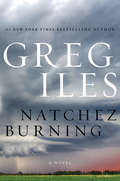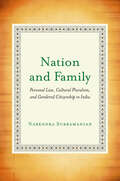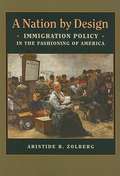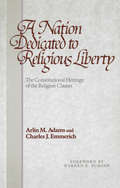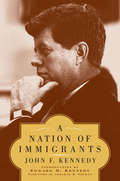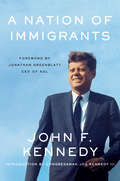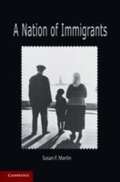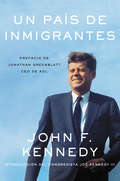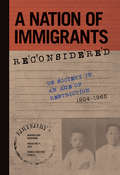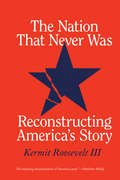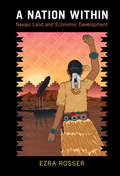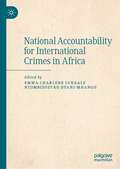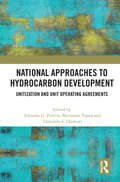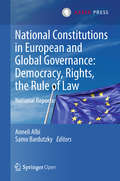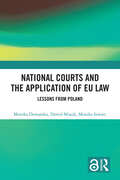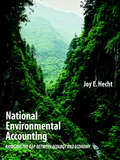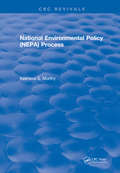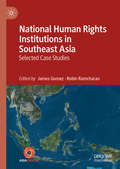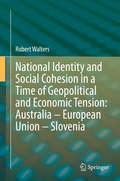- Table View
- List View
The Narrows (Harry Bosch Series #10)
by Michael ConnellyHe's back . . . Private investigator Harry Bosch confronts a villain who's long been in hiding - a fiend known as The Poet. Former FBI agent Rachel Walling is working a dead-end stint in South Dakota when she gets the call she's been dreading for four years. The Poet is back. And he has not forgotten Rachel. He has a special present for her. Harry Bosch is adjusting to life in Las Vegas as a private investigator and a new father. He gets a call, too, from the widow of a friend who died recently. Previously in his FBI career, the friend worked on the famous case tracking the killer known as The Poet. This fact alone makes some of the elements of his death doubly suspicious. And Harry Bosch is heading straight into the path of the most ruthless and inventive murderer he has ever encountered. . .
The Narrows (Harry Bosch Series #10)
by Michael ConnellyFormer FBI agent Rachel Walling is working a dead-end stint in South Dakota when she gets the call she's been dreading for four years. The Poet is back. And he has not forgotten Rachel. He has a special present for her. Harry Bosch is adjusting to life in Las Vegas as a private investigator and as a new father. He gets a call, too, from the widow of a friend who died recently. Previously in his FBI career, the friend worked on the famous case tracking the killer known as The Poet. This fact alone makes some of the elements of his death doubly suspicious. And Harry Bosch is heading straight into the path of the most ruthless and inventive murderer he has ever encountered...Read by David Soul(p) 2004 Orion Publishing Group
Natchez Burning: A Novel (Penn Cage #4)
by Greg IlesFrom #1 New York Times bestselling author Greg Iles comes the first novel in his Natchez Burning trilogy—which also includes The Bone Tree and the upcoming Mississippi Blood—an epic trilogy that interweaves crimes, lies, and secrets past and present in a mesmerizing thriller featuring Southern lawyer and former prosecutor Penn Cage. Raised in the southern splendor of Natchez, Mississippi, Penn Cage learned all he knows of duty from his father, Dr. Tom Cage. But now the beloved family doctor has been accused of murdering the African American nurse with whom he worked in the dark days of the 1960s. Once a crusading prosecutor, Penn is determined to save his father, but Tom, stubbornly invoking doctor-patient privilege, refuses even to speak in his own defense.Penn's quest for the truth sends him deep into his father's past, where a sexually charged secret lies. More chilling, this long-buried sin is only one thread in a conspiracy of greed and murder involving the vicious Double Eagles, an offshoot of the KKK controlled by some of the most powerful men in the state. Aided by a dedicated reporter privy to Natchez's oldest secrets and by his fiancée, Caitlin Masters, Penn uncovers a trail of corruption and brutality that places his family squarely in the Double Eagles' crosshairs.With every step costing blood and faith, Penn is forced to confront the most wrenching dilemma of his life: Does a man of honor choose his father or the truth?
The Natchez Burning Trilogy: A Penn Cage Collection Featuring: Natchez Burning, The Bone Tree, and Mississippi Blood (Penn Cage)
by Greg Iles“A superb entertainment that is a work of power, distinction and high seriousness.” – Washington PostFrom #1 New York Times bestselling author Greg Iles come the widely acclaimed Natchez Burning trilogy, featuring Penn CageNatchez BurningRaised in Natchez, Mississippi, Penn Cage learned all he knows from his father, Dr. Tom Cage. But now Tom has been accused of murdering the Black nurse with whom he worked in the 1960s and Penn is determined to exonerate him. The quest for answers leads down a trail of corruption and brutality that places Penn’s family squarely in the crosshairs of the Double Eagles, a vicious offshoot of the KKK controlled by some of the state’s most powerful men. Penn ultimately must acknowledge that secrets from his father’s past have put the Cage family in great jeopardy. The Bone TreePenn Cage’s family is in crisis, has inadvertently started a war with an offshoot of the KKK called the Double Eagles, and his fiancée, journalist Caitlin Masters, is chasing the biggest—and most dangerous— story of her career. The only path out of this chaos is taking on the powerful men behind the Double Eagles, who are hiding a secret legacy darker than anything Penn can imagine. All roads lead to the Bone Tree, a legendary killing site that conceals far more than the remains of the forgotten—and where the shadow of personal tragedy threatens all Penn holds dearest. Mississippi BloodPenn Cage is shattered by grief and dreaming of vengeance. The woman he loves is gone, and his father Dr. Tom Cage is about to be tried for murder. When Tom stubbornly refuses to speak in his own defense, Penn joins forces with Serenity Butler, a famous young Black author who has come to Natchez to write about his father's case. Together, Penn and Serenity battle to discover the secret history of the Cage family and the South itself, a desperate move that risks the only thing they have left to gamble: their lives.
Nation and Family: Personal Law, Cultural Pluralism, and Gendered Citizenship in India
by Narendra SubramanianThe distinct personal laws that govern the major religious groups are a major aspect of Indian multiculturalism and secularism, and support specific gendered rights in family life. Nation and Family is the most comprehensive study to date of the public discourses, processes of social mobilization, legislation and case law that formed India's three major personal law systems, which govern Hindus, Muslims, and Christians. It for the first time systematically compares Indian experiences to those in a wide range of other countries that inherited personal laws specific to religious group, sect, or ethnic group. The book shows why India's postcolonial policy-makers changed the personal laws they inherited less than the rulers of Turkey and Tunisia, but far more than those of Algeria, Syria and Lebanon, and increased women's rights for the most part, contrary to the trend in Pakistan, Iran, Sudan and Nigeria since the 1970s. Subramanian demonstrates that discourses of community and features of state-society relations shape the course of personal law. Ruling elites' discourses about the nation, its cultural groups and its traditions interact with the state-society relations that regimes inherit and the projects of regimes to change their relations with society. These interactions influence the pattern of multiculturalism, the place of religion in public policy and public life, and the forms of regulation of family life. The book shows how the greater engagement of political elites with initiatives among the Hindu majority and the predominant place they gave Hindu motifs in discourses about the nation shaped Indian multiculturalism and secularism, contrary to current understandings. In exploring the significant role of communitarian discourses in shaping state-society relations and public policy, it takes "state-in-society" approaches to comparative politics, political sociology, and legal studies in new directions.
Nation and Family: Personal Law, Cultural Pluralism, and Gendered Citizenship in India
by Narendra SubramanianThe distinct personal laws that govern the major religious groups are a major aspect of Indian multiculturalism and secularism, and support specific gendered rights in family life. Nation and Family is the most comprehensive study to date of the public discourses, processes of social mobilization, legislation and case law that formed India's three major personal law systems, which govern Hindus, Muslims, and Christians. It for the first time systematically compares Indian experiences to those in a wide range of other countries that inherited personal laws specific to religious group, sect, or ethnic group. The book shows why India's postcolonial policy-makers changed the personal laws they inherited less than the rulers of Turkey and Tunisia, but far more than those of Algeria, Syria and Lebanon, and increased women's rights for the most part, contrary to the trend in Pakistan, Iran, Sudan and Nigeria since the 1970s. Subramanian demonstrates that discourses of community and features of state-society relations shape the course of personal law. Ruling elites' discourses about the nation, its cultural groups and its traditions interact with the state-society relations that regimes inherit and the projects of regimes to change their relations with society. These interactions influence the pattern of multiculturalism, the place of religion in public policy and public life, and the forms of regulation of family life. The book shows how the greater engagement of political elites with initiatives among the Hindu majority and the predominant place they gave Hindu motifs in discourses about the nation shaped Indian multiculturalism and secularism, contrary to current understandings. In exploring the significant role of communitarian discourses in shaping state-society relations and public policy, it takes "state-in-society" approaches to comparative politics, political sociology, and legal studies in new directions.
A Nation By Design: Immigration Policy In The Fashioning Of America
by Aristide R. ZolbergAccording to the national mythology, the United States has long opened its doors to people from across the globe, providing a port in a storm and opportunity for any who seek it. Yet the history of immigration to the United States is far different. Even before the xenophobic reaction against European and Asian immigrants in the late nineteenth century, social and economic interest groups worked to manipulate immigration policy to serve their needs. In A Nation by Design, Aristide Zolberg explores American immigration policy from the colonial period to the present, discussing how it has been used as a tool of nation building. <p><p> A Nation by Design argues that the engineering of immigration policy has been prevalent since early American history. However, it has gone largely unnoticed since it took place primarily on the local and state levels, owing to constitutional limits on federal power during the slavery era. Zolberg profiles the vacillating currents of opinion on immigration throughout American history, examining separately the roles played by business interests, labor unions, ethnic lobbies, and nativist ideologues in shaping policy. He then examines how three different types of migration--legal migration, illegal migration to fill low-wage jobs, and asylum-seeking--are shaping contemporary arguments over immigration to the United States. <p> A Nation by Design is a thorough, authoritative account of American immigration history and the political and social factors that brought it about. With rich detail and impeccable scholarship, Zolberg's book shows how America has struggled to shape the immigration process to construct the kind of population it desires.
A Nation Dedicated to Religious Liberty
by Charles J. Emmerich Warren E. Burger Arlin M. AdamsHere is a concise overview of the historical development and judicial interpretation of the First Amendment religion clauses. It begins with a survey of the history of American religious liberty, goes on to present the views of the Founding Fathers, and then considers the core value of religious liberty and the constitutional purposes that implement that value.the book ends on a practical note by applying these principles to questions of equal access, religious symbolism in public life, and the task of defining religion for constitutional purposes. As the authors note in their introduction, "the historical principles that animate the religion clauses are more than an abstract intellectual exercise. . . . They provide an essential context for guiding the resolution of modern religious liberty issues."
A Nation of Immigrants
by John F. KennedyThroughout his presidency, John F. Kennedy was passionate about the issue of immigration reform. He believed that America is a nation of people who value both tradition and the exploration of new frontiers, people who deserve the freedom to build better lives for themselves in their adopted homeland. This modern edition of his posthumously published, timeless work—with a new introduction by Senator Edward M. Kennedy and a foreword by Abraham H. Foxman, national director of the Anti-Defamation League—offers the late president's inspiring suggestions for immigration policy and presents a chronology of the main events in the history of immigration in America.As continued debates on immigration engulf the nation, this paean to the importance of immigrants to our nation's prominence and success is as timely as ever.
A Nation of Immigrants
by John F. Kennedy“In this timeless book, President Kennedy shows how the United States has always been enriched by the steady flow of men, women, and families to our shores. It is a reminder that America’s best leaders have embraced, not feared, the diversity which makes America great.” —Former Secretary of State Madeleine K. Albright Throughout his presidency, John F. Kennedy was passionate about the issue of immigration reform. He believed that America is a nation of people who value both tradition and the exploration of new frontiers, deserving the freedom to build better lives for themselves in their adopted homeland. This 60th anniversary edition of his posthumously published, timeless work—with a foreword by Jonathan Greenblatt, the National Director and CEO of the ADL, formerly known as the Anti-Defamation League, and an introduction from Congressman Joe Kennedy III—offers President Kennedy’s inspiring words and observations on the diversity of America’s origins and the influence of immigrants on the foundation of the United States.The debate on immigration persists. Complete with updated resources on current policy, this new edition of A Nation of Immigrants emphasizes the importance of the collective thought and contributions to the prominence and success of the country.
A Nation of Immigrants
by Susan F. MartinImmigration makes America what it is and is formative for what it will become. America was settled by three different models of immigration, all of which persist to the present. The Virginia Colony largely equated immigration with the arrival of laborers, who had few rights. Massachusetts welcomed those who shared the religious views of the founders but excluded those whose beliefs challenged the prevailing orthodoxy. Pennsylvania valued pluralism, becoming the most diverse colony in religion, language, and culture. This book traces the evolution of these three models of immigration as they explain the historical roots of current policy debates and options. Arguing that the Pennsylvania model has best served the country, the final chapter makes recommendations for future immigration reform. Given the highly controversial nature of immigration in the United States, this book provides thoughtful analysis, valuable to both academic and policy audiences.
Nation of Immigrants, A \ país de inmigrantes, Un (Spanish edition)
by John KennedyA lo largo de su presidencia, John F. Kennedy estuvo apasionado por el tema de la reforma migratoria. Él pensaba que los Estados Unidos son una nación de personas que valoran equitativamente las tradiciones y la exploración de nuevas fronteras, dignos de la libertad para construir mejores vidas para sí mismos en su país adoptivo.Esta edición del sexagésimo aniversario de este ensayo póstumo y perene, que incluye una introducción del Congresista Joe Kennedy III y un prólogo de Jonathan Greenblatt, Director Ejecutivo y Director Nacional de ADL (Liga Anti-Difamación), ofrece palabras y observaciones inspiradoras del presidente Kennedy acerca de la diversidad que ha estado presente desde los orígenes de los Estados Unidos y la importancia de los inmigrantes en la fundación de los Estados Unidos.
A Nation of Immigrants Reconsidered: US Society in an Age of Restriction, 1924-1965 (Studies of World Migrations #21)
by Maddalena Marinari Madeline Hsu Maria Cristina GarciaScholars, journalists, and policymakers have long argued that the 1965 Immigration and Nationality Act dramatically reshaped the demographic composition of the United States. In A Nation of Immigrants Reconsidered, leading scholars of immigration explore how the political and ideological struggles of the so-called "age of restriction"--from 1924 to 1965--paved the way for the changes to come. The essays examine how geopolitics, civil rights, perceptions of America's role as a humanitarian sanctuary, and economic priorities led government officials to facilitate the entrance of specific immigrant groups, thereby establishing the legal precedents for future policies. Eye-opening articles discuss Japanese war brides and changing views of miscegenation, the recruitment of former Nazi scientists, a temporary workers program with Japanese immigrants, the emotional separation of Mexican immigrant families, Puerto Rican youth's efforts to claim an American identity, and the restaurant raids of conscripted Chinese sailors during World War II. Contributors: Eiichiro Azuma, David Cook-Martín, David FitzGerald, Monique Laney, Heather Lee, Kathleen López, Laura Madokoro, Ronald L. Mize, Arissa H. Oh, Ana Elizabeth Rosas, Lorrin Thomas, Ruth Ellen Wasem, and Elliott Young.
The Nation That Never Was: Reconstructing America's Story
by Kermit Roosevelt III&“Persuasively argues that we must liberate ourselves from our sentimentalized attachment to the &‘Founders&’ and even the Declaration of Independence&” --Sanford Levinson, author of Our Undemocratic Constitution There&’s a common story we tell about America: that our fundamental values as a country were stated in the Declaration of Independence, fought for in the Revolution, and made law in the Constitution. But, with the country increasingly divided, this story isn&’t working for us anymore—what&’s more, it&’s not even true. As Kermit Roosevelt argues in this eye-opening reinterpretation of the American story, our fundamental values, particularly equality, are not part of the vision of the Founders. Instead, they were stated in Lincoln&’s Gettysburg Address and were the hope of Reconstruction, when it was possible to envision the emergence of the nation committed to liberty and equality. We face a dilemma these days. We want to be honest about our history and the racism and oppression that Americans have both inflicted and endured. But we want to be proud of our country, too. In The Nation That Never Was, Roosevelt shows how we can do both those things by realizing we&’re not the country we thought we were. Reconstruction, Roosevelt argues, was not a fulfillment of the ideals of the Founding but rather a repudiation: we modern Americans are not the heirs of the Founders but of the people who overthrew and destroyed that political order. This alternate understanding of American identity opens the door to a new understanding of ourselves and our story, and ultimately to a better America. &“An inspiring reexamination of America's past.&” —Publishers Weekly &“Compelling and well worth consideration.&” —Kirkus Reviews, starred review
A Nation Within: Navajo Land and Economic Development
by Ezra RosserIn A Nation Within, Ezra Rosser explores the connection between land-use patterns and development in the Navajo Nation. Roughly the size of Ireland or West Virginia, the Navajo reservation has seen successive waves of natural resource-based development over the last century: grazing and over-grazing, oil and gas, uranium, and coal; yet Navajos continue to suffer from high levels of unemployment and poverty. Rosser shows the connection between the exploitation of these resources and the growth of the tribal government before turning to contemporary land use and development challenges. He argues that, in addition to the political challenges associated with any significant change, external pressures and internal corruption have made it difficult for the tribe to implement land reforms that could help provide space for economic development that would benefit the Navajo Nation and Navajo tribal members.
National Accountability for International Crimes in Africa
by Emma Charlene Lubaale Ntombizozuko Dyani-MhangoThis book critically examines the issues pertaining to the Rome Statute’s complementarity principle. The focus lies on the primacy of African states to prosecute alleged perpetrators of international crimes in their respective jurisdictions. The chapters explore states’ international and domestic obligations to hold perpetrators of international crimes to account before the national courts, and demonstrate the complexity of enforcing national accountability of alleged perpetrators of international crimes while also ensuring that post-conflict African states achieve national healing, reconciliation, and sustainable peace. The contributions reject impunity for international crimes whilst also considering these complexities. Emphasis further lies on the meaning of accountability in the context of the politics of selective international criminal justice for crimes committed before the establishment of the International Criminal Court.
National Approaches to Hydrocarbon Development: Unitization and Unit Operating Agreements
by Eduardo G. Pereira Marianthi Pappa Damilola S. OlawuyiThis book analyses the legal obstacles associated with the advancement of unitization processes and procedures at a national, domestic level.It uses case studies of identified jurisdictions with relevant States practice and unitization experience in terms of the domestic legal framework and practices. For experience in unitization, the book will focus on the following countries: the United States, Canada, the United Kingdom, Norway, Brazil, Mexico, Ghana and Nigeria. Focusing on best practices which have influenced the development of the unitization concept, the book looks at the formulation of different models and operating agreements, and their potential impact on unexplored hydrocarbon resources, particularly in cases where unitization is necessary.The book will be of interest to practitioners, scholars and students in the field of natural resource law, international law and unitization.
National Cleansing: Retribution Against Nazi Collaborators in Postwar Czechoslovakia
by Benjamin FrommerNational Cleansing examines the prosecution of over one hundred thousand suspected war criminals and collaborators by Czech courts and tribunals after the Second World War. As the first comprehensive history of postwar Czech retribution, this 2005 book provides a new perspective on Czechoslovakia's transition from Nazi occupation to Stalinist rule in the turbulent decade from the Munich Pact of September 1938 to the Communist coup d'tat of February 1948. Based on archival sources that remained inaccessible during the Cold War, National Cleansing demonstrates the central role of retribution in the postwar power struggle and the contemporary expulsion of the Sudeten Germans. In contrast to general histories of postwar Czechoslovakia, which portray retribution as little more than Communist-inspired political justice, this book illustrates that the prosecution of collaborators and war criminals represented a genuine, if flawed, attempt to confront the crimes of the past, including those committed by the Czechs themselves.
National Constitutions in European and Global Governance: National Reports
by Anneli Albi Samo BardutzkyThis two-volume book, published open access, brings together leading scholars of constitutional law from twenty-nine European countries to revisit the role of national constitutions at a time when decision-making has increasingly shifted to the European and transnational level. It offers important insights into three areas. First, it explores how constitutions reflect the transfer of powers from domestic to European and global institutions. Secondly, it revisits substantive constitutional values, such as the protection of constitutional rights, the rule of law, democratic participation and constitutional review, along with constitutional court judgments that tackle the protection of these rights and values in the transnational context, e.g. with regard to the Data Retention Directive, the European Arrest Warrant, the ESM Treaty, and EU and IMF austerity measures. The responsiveness of the ECJ regarding the above rights and values, along with the standard of protection, is also assessed. Thirdly, challenges in the context of global governance in relation to judicial review, democratic control and accountability are examined. On a broader level, the contributors were also invited to reflect on what has increasingly been described as the erosion or ‘twilight’ of constitutionalism, or a shift to a thin version of the rule of law, democracy and judicial review in the context of Europeanisation and globalisation processes.The national reports are complemented by a separately published comparative study, which identifies a number of broader trends and challenges that are shared across several Member States and warrant wider discussion. The research for this publication and the comparative study were carried out within the framework of the ERC-funded project ‘The Role and Future of National Constitutions in European and Global Governance’.The book is aimed at scholars, researchers, judges and legal advisors working on the interface between national constitutional law and EU and transnational law. The extradition cases are also of interest to scholars and practitioners in the field of criminal law.Anneli Albi is Professor of European Law at the University of Kent, United Kingdom.Samo Bardutzky is Assistant Professor of Constitutional Law at the University of Ljubljana, Slovenia.
National Courts and the Application of EU Law: Lessons from Poland
by Monika Domańska Dawid Miąsik Monika SzwarcThis book presents the case law of Polish courts, namely the Supreme Court, administrative courts and the Constitutional Tribunal, in which the principles of EU law have been successfully applied. It discusses how Polish courts apply principles of consistent interpretation, primacy and direct effect of EU law in their daily adjudicating practice in order to ensure effet utile of EU law, resulting in effective protection of individuals' rights derived from the EU legal order. The book explores the legal nature of these principles and, in particular, the requirement that national rules that are found to be incompatible with legally binding and enforceable EU law should be disapplied by the domestic courts. It explains Polish courts’ reasoning concerning the inseparable relationship between the principle of primacy of EU law and the remedy of disapplication of national law. As the guidelines provided for the national courts by the Court of Justice of the European Union are often quite vague, the work will be important and useful for academics and practitioners from different European jurisdictions to observe the manner in which these principles of EU law are applied in jurisdictions other than their own.
National Courts and the Application of EU Law: Lessons from Poland
by Monika Domańska Dawid Miąsik Monika SzwarcThis book presents the case law of Polish courts, namely the Supreme Court, administrative courts and the Constitutional Tribunal, in which the principles of EU law have been successfully applied. It discusses how Polish courts apply principles of consistent interpretation, primacy and direct effect of EU law in their daily adjudicating practice in order to ensure effet utile of EU law, resulting in effective protection of individuals' rights derived from the EU legal order. The book explores the legal nature of these principles and, in particular, the requirement that national rules that are found to be incompatible with legally binding and enforceable EU law should be disapplied by the domestic courts. It explains Polish courts’ reasoning concerning the inseparable relationship between the principle of primacy of EU law and the remedy of disapplication of national law. As the guidelines provided for the national courts by the Court of Justice of the European Union are often quite vague, the work will be important and useful for academics and practitioners from different European jurisdictions to observe the manner in which these principles of EU law are applied in jurisdictions other than their own.The Open Access version of this book, available at http://www.taylorfrancis.com, has been made available under a Creative Commons Attribution (CC BY) 4.0 license.
National Environmental Accounting: Bridging the Gap between Ecology and Economy
by Joy E HechtThis book presents national environmental, or 'green' accounting as it has developed in Europe and other parts of the world. It introduces the most recent methods developed through the United Nations Statistical Department and other international organizations, but bridges the gap between the superficial treatment of environmental accounting in economics textbooks and environmental literature, on the one hand, and the highly technical manuals of international organizations, on the other. Joy Hecht begins with a history and introduction to national income accounting. The first part of her book explains how the environmental accounts build on the structure of the 1993 System of National Accounts. She then shows the UN approach to accounting applied to pollution, recycling, and the management of natural resources such as forests, minerals, and fisheries. The third section discusses how the accounts approach green GDP and other macroeconomic indicators. The book concludes by going beyond the UN structures to discuss other adjusted macroeconomic measures and how accounting data can be used to build them. National Environmental Accounting is a non-technical introduction to an increasingly important field. It is a must-read for anyone interested in how environmental accounts can help society move towards greater sustainability.
National Environmental Policy (NEPA) Process
by K.S. MurthyThis book is mainly about the National Environmental Policy Act (NEPA) of 1969 and the process for its implementation. This is most often called theNEPA process. The need for this book arises because, although the awareness for faithful implementation of NEPA has now matured, the method of NEPA implementation is not always known, and hence, needs to be clearly laid out for the benefit of project engineers and the decision makers in government and industry. This book aims to do that.
National Human Rights Institutions in Southeast Asia: Selected Case Studies
by Robin Ramcharan James GomezThis book reviews Southeast Asia’s National Human Rights Institutions (NHRIs) as part of an emerging assessment of a nascent regional human rights architecture that is facing significant challenges in protecting human rights. The book asks, can NHRIs overcome its weaknesses and provide protection, including remedies, to victims of human rights abuses? Assessing NHRIs’ capacity to do so is vital as the future of human rights protection lies at the national level, and other parts of the architecture—the ASEAN Intergovernmental Commission on Human Rights (AICHR), and the international mechanism of the Universal Periodic Review (UPR)—though helpful, also have their limitations. The critical question the book addresses is whether NHRIs individually or collaboratively provide protection of fundamental human rights. The body of work offered in this book showcases the progress of the NHRIs in Southeast Asia where they also act as a barometer for the fluid political climate of their respective countries. Specifically, the book examines the NHRIs’ capacity to provide protection, notably through the pursuit of quasi-judicial functions, and concludes that this function has either been eroded due to political developments post-establishment or has not been included in the first place. The book’s findings point to the need for NHRIs to increase their effectiveness in the protection of human rights and invites readers and stakeholders to find ways of addressing this gap.
National Identity and Social Cohesion in a Time of Geopolitical and Economic Tension: Australia – European Union – Slovenia
by Robert WaltersThis book aims to enrich the thinking and discussion in relation to the importance that citizenship, immigration, rights and private laws play in the modern world. This is in a time when social cohesion and national identity is being challenged. It will explore the impact these laws have had on Australia, European Union (EU) and Slovenia. Identity and social cohesion are contested concepts and can invoke different responses. The challenges states and the EU are likely to face in retaining and even strengthening their respective identities and social cohesion from continued geopolitical shocks, security, economic volatility and environmental degradation is likely to be formidable. These alone pose some of the most complex political and policy issues facing the world. The EU can be held up as a polity that, has developed an identity and level of cohesion, while allowing member states to retain their national identities. It has, to date, also been successful in managing the rise of nationalism. However, that has come under threat in recent times. Thus, the very foundations of liberal democracy could be diluted from the impact of these challenges. Moreover, the basic foundations of rights have, in part, already been diluted from the rise of terrorism (which is acceptable), however, the geopolitical differences pose a significant challenge, in, and of themselves.
